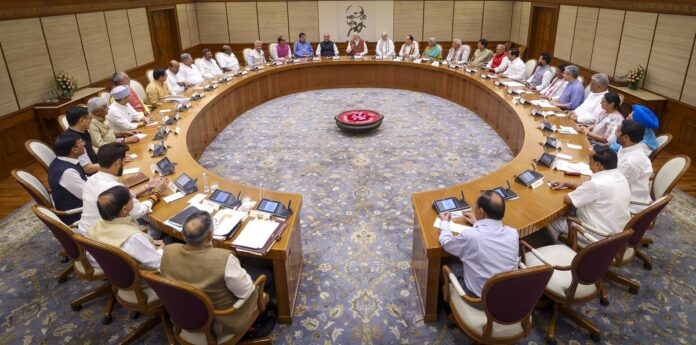Syllabus:
GS2: Government policies and interventions for development in various sectors and issues arising out of their design and implementation.
Context: The Union Cabinet has approved the proposal for implementation of the ‘Multidisciplinary Education and Research Improvement in Technical Education’ (MERITE) Scheme in 275 technical institutions comprising 175 engineering institutions and 100 polytechnics.
About MERITE Scheme
• The objective of the scheme is to improve the quality, equity and governance in technical education covering all States/UTs by implementing interventions aligned with the National Educational Policy-2020 (NEP-2020).
• It is a ‘Central Sector Scheme’ with total financial outlay of Rs. 4200 crores for a period from 2025-26 to 2029-30, with external assistance of Rs. 2100 crores from the World Bank as a loan.
• The major reform areas in the policy include revamping curriculum, pedagogy, assessment, multidisciplinary programs in technical courses, strengthening research ecosystem, development of future academic administrators, faculty skill upgradation, addressing gender gaps in technical education and reducing digital divide etc.
• Benefits: The scheme will support about 275 technical institutions and State/UT technical education departments, including National Institutes of Technology (NITs), State Engineering Institutions, and Affiliating Technical Universities, benefiting nearly 7.5 lakh students.
Implementation strategy and targets
• The scheme will be implemented in government engineering institutions and Polytechnics in all States/ UTs.
• Funds will be transferred from the Central Government to participating entities through a Central Nodal Agency.
• Eminent educational institutions like the IITs and IIMs and regulatory bodies in the higher education sector such as All India Council for Technical Education (AICTE) and National Board of Accreditation (NBA), will play a significant role in the scheme implementation.
Employment Generation
• This initiative aims to enhance students’ employability through internships, industry-aligned curricula, faculty training, and research hubs.
• Support will also be extended to incubation centers, skill labs, and language workshops, with the goal of improving placement rates and reducing unemployment among engineering graduates across States and Union Territories.
Major Expected Outcomes
• Digitalization strategies in participating States/ UTs,
• Development of guidelines for multidisciplinary programs among technical courses,
• Increase in learning and employability skills of students,
• Increase in transition rate of students across student groups,
• Strengthened research and innovation environment,
• Better quality assurance and governance mechanisms resulting in long term benefits,
• Increase in accreditation and better Technical Education Institution – level Quality Assurance,
• Relevant, labour market-aligned curriculums and blended courses developed and rolled out and
• Development of future academic administrators especially women faculty.

